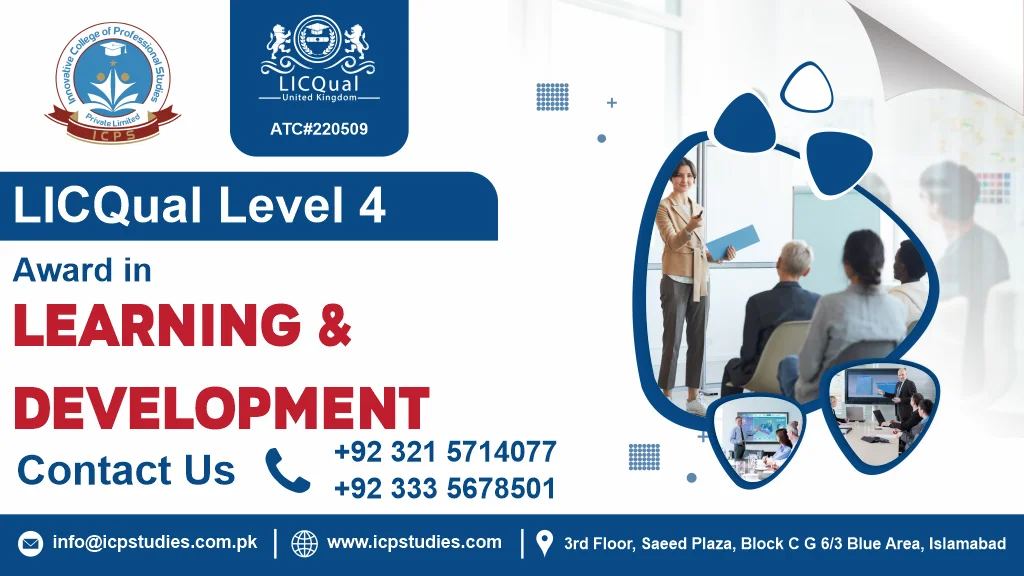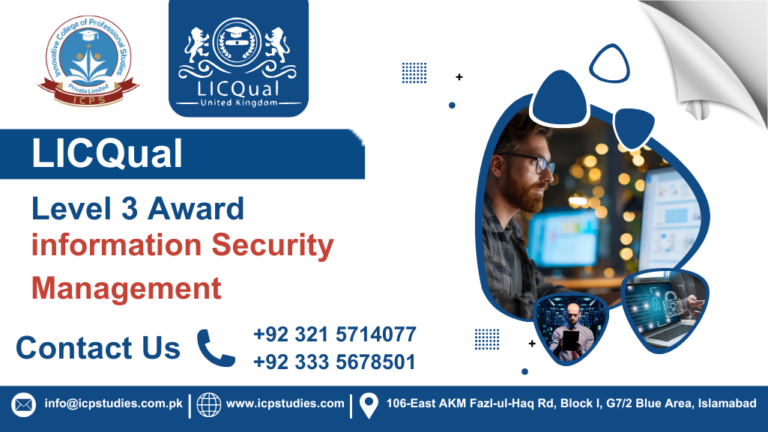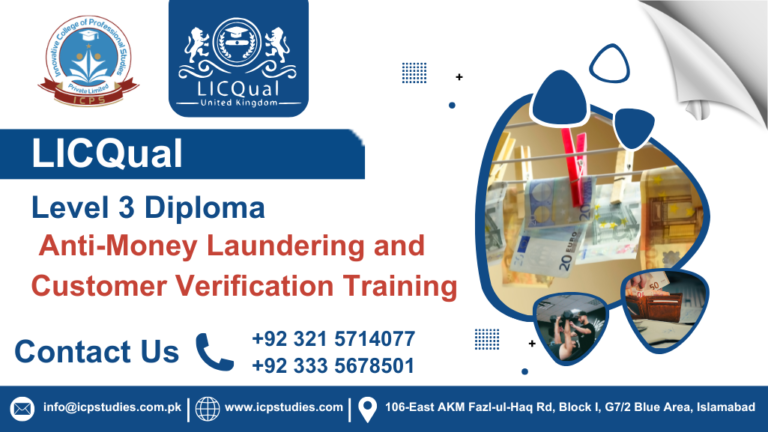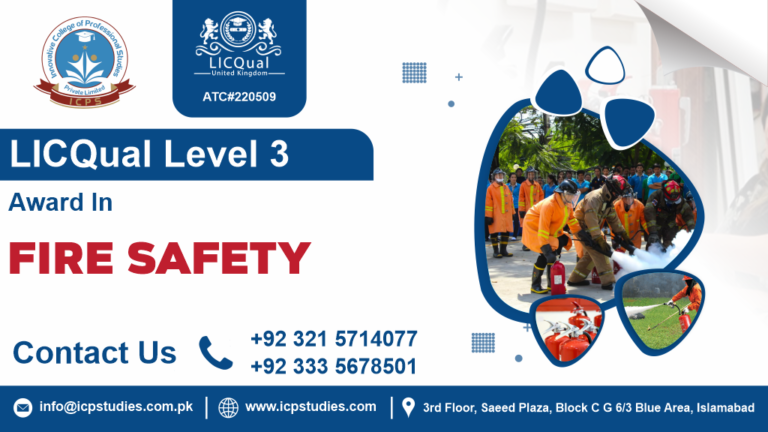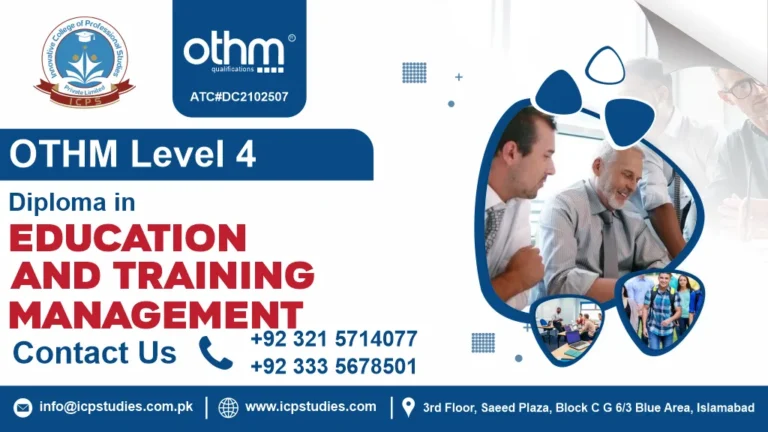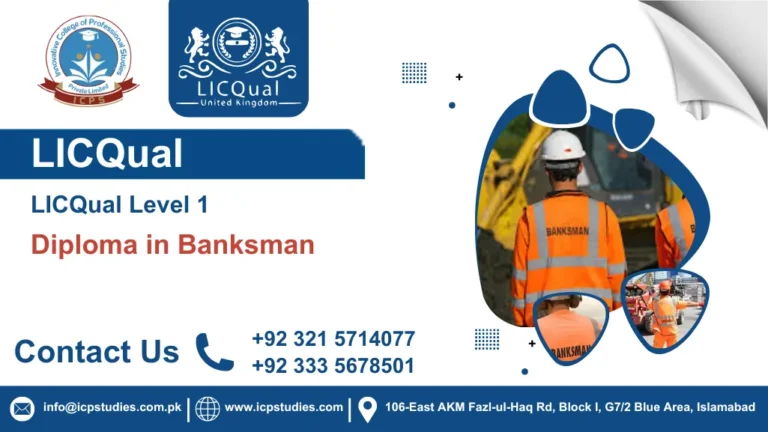In today’s fast-paced work environment, continuous learning and effective development strategies are key to organizational success and individual career growth. The Level 4 Award in Learning and Development offers a valuable opportunity for professionals to enhance their skills in designing, delivering, and managing training and development programs. This blog post explores the benefits, structure, and outcomes of this essential qualification, and how it can transform your approach to learning and development.
The Level 4 Award in Learning and Development is designed for those who are involved in or wish to enter the field of training and development. This qualification provides foundational skills and knowledge in delivering effective learning experiences and supporting the development of others within an organization. It’s an ideal qualification for aspiring trainers, HR professionals, and development managers looking to advance their expertise in creating impactful learning solutions.
Level 4 Award in Learning and Development offers a comprehensive introduction to the field of training and development. With its focus on practical skills and theoretical knowledge, this qualification equips you to design, deliver, and evaluate effective learning programs. Whether you are starting your career in learning and development or seeking to enhance your professional skills, this course provides a valuable foundation for achieving your goals and advancing your career.
All About Level 4 Award in Learning and Development
Course Overview
The Level 4 Award in Learning and Development is a foundational qualification designed for professionals involved in or aspiring to enter the field of training and development. This award focuses on equipping individuals with essential skills and knowledge needed to effectively design, deliver, and assess training programs. It provides a solid grounding in the principles and practices of learning and development, making it an invaluable qualification for those seeking to enhance their capabilities in fostering employee growth and improving organizational performance.
Level 4 Award in Learning and Development provides essential training for those involved in or aspiring to work in learning and development roles. It equips participants with the skills needed to design, deliver, and assess effective training programs, making it a valuable qualification for professionals looking to advance their careers and enhance their contributions to organizational development.
Study Units
- Unit 1: Introduction to Learning and Development
- Unit 2: Training Needs Analysis
- Unit 3: Designing Effective Training Programs
- Unit 4: Delivering Impactful Training Sessions
- Unit 5: Evaluating Training Effectiveness
To enroll in the LICQual Level 4 Award in Learning and Development, candidates should meet the following criteria:
- Relevant Professional Background: Applicants should have experience in a learning and development role, such as trainers, learning coordinators, or HR professionals.
- Minimum Qualification: A Level 3 qualification in a related field (e.g., education, training, or human resources) is typically required to ensure foundational knowledge.
- Practical Experience: Candidates should have some hands-on experience in delivering training or facilitating learning sessions.
- Strong Communication Skills: Effective verbal and written communication skills are essential for engaging with learners and creating training materials.
- Commitment to Professional Development: A demonstrated interest in enhancing skills and knowledge in learning and development practices.
- Pre-Course Assessment: Some providers may require candidates to complete an assessment or interview to evaluate their suitability for the course.
- Understanding of Adult Learning Principles: Familiarity with adult learning theories and training methodologies is beneficial but can be developed during the course.
The LICQual Level 4 Award in Learning and Development is designed for a variety of professionals involved in training and development. Ideal candidates include:
- Trainers and Facilitators: Individuals who deliver training sessions and wish to enhance their skills and methodologies.
- Learning and Development Coordinators: Professionals responsible for organizing and managing training programs within organizations.
- Human Resources Practitioners: HR staff involved in employee development and training initiatives.
- Instructional Designers: Those who create training materials and educational programs looking to deepen their understanding of effective learning strategies.
- Coaches and Mentors: Professionals engaged in coaching employees who want to formalize their approach to learning and development.
- New Graduates and Aspiring Professionals: Individuals pursuing a career in learning and development who wish to gain foundational skills and knowledge in the field.
- Team Leaders and Managers: Those interested in developing their team’s skills and competencies through effective training practices.
Learning Outcome
Unit 1: Introduction to Learning and Development
Learning Outcomes:
- Understand the Role of Learning and Development: Describe the key functions and responsibilities of learning and development within an organization, including the role of a learning and development practitioner.
- Identify Key Concepts and Theories: Explain fundamental concepts, theories, and models related to learning and development, including adult learning principles and the importance of continuous professional development.
- Assess Organizational Needs: Recognize how learning and development align with organizational goals and strategies, and identify how they contribute to overall business success.
- Demonstrate Understanding of the Learning Cycle: Outline the stages of the learning cycle and how they apply to the development and delivery of effective training programs.
Unit 2: Training Needs Analysis
Learning Outcomes:
- Conduct Needs Assessments: Perform a comprehensive training needs analysis to identify gaps in skills and knowledge within an organization or specific teams.
- Utilize Assessment Tools: Apply various tools and techniques for assessing training needs, including surveys, interviews, focus groups, and performance data analysis.
- Analyze Data and Identify Priorities: Analyze assessment data to determine priority areas for training and development, and align these priorities with organizational objectives.
- Develop Actionable Recommendations: Formulate actionable recommendations based on needs analysis findings to address identified skills gaps and support organizational goals.
Unit 3: Designing Effective Training Programs
Learning Outcomes:
- Create Training Objectives: Develop clear, measurable training objectives that align with the identified needs and organizational goals.
- Design Training Materials: Design effective training materials and resources, including lesson plans, activities, and assessment tools that cater to various learning styles.
- Develop a Training Program Structure: Structure training programs to ensure they are coherent, engaging, and appropriately paced, incorporating a variety of instructional methods and resources.
- Apply Learning Theories: Integrate relevant learning theories and models into the design of training programs to enhance learning outcomes and effectiveness.
Unit 4: Delivering Impactful Training Sessions
Learning Outcomes:
- Apply Delivery Techniques: Utilize effective delivery techniques and methods to engage learners and facilitate the learning process, including presentation skills, group activities, and interactive exercises.
- Manage Training Sessions: Demonstrate the ability to manage training sessions effectively, including handling group dynamics, addressing learner needs, and adapting content as necessary.
- Facilitate Learner Participation: Encourage and facilitate active participation and interaction among learners to enhance engagement and knowledge retention.
- Handle Challenges: Address and resolve challenges that may arise during training sessions, such as managing difficult behavior or responding to unexpected questions.
Unit 5: Evaluating Training Effectiveness
Learning Outcomes:
- Assess Training Outcomes: Implement methods for evaluating the effectiveness of training programs, including formative and summative assessments, feedback surveys, and performance metrics.
- Analyze Evaluation Data: Analyze data from evaluations to determine the success of training programs, including learner satisfaction, knowledge retention, and application of skills.
- Make Improvement Recommendations: Identify areas for improvement based on evaluation results and make recommendations for enhancing future training programs.
- Demonstrate Impact: Show how training programs contribute to organizational goals and individual performance improvements, using evidence from evaluation findings.
In summary, these learning outcomes ensure that participants of the Level 4 Award in Learning and Development gain the skills and knowledge necessary to effectively assess, design, deliver, and evaluate training programs, ultimately supporting their professional development and organizational success.
FAQs about Level 4 Award in Learning and Development

